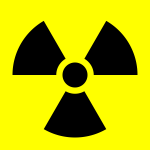In the 1990s, it seemed the world had changed forever after the fall of Communist Russia. The United States’ greatest foe was at worst weakened, and perhaps even a new friend for the world’s remaining superpower.
But the current Russian government made it clear last week with comments on Iran and their nuclear program that they are not onboard with the US. Instead, it’s a new twist on an old phrase: The friend of my enemy is… not my friend.
Russian Foreign Minister Sergei Lavrov, in comments quoted by RIA Novosti, went so far as to discourage the Europeans from upgrading sanctions on Iranian crude oil. In fact, he effectively accused the EU—and others like the US seeking similar steps—of trying to seek to overthrow the Iranian regime.
“This has nothing to do with a desire to strengthen nuclear non-proliferation,” Lavrov was quoted as saying of oil sanctions being considered by the EU. “It’s aimed at stifling the Iranian economy and the population in the apparent hope of provoking discontent.”
He further claimed such a step would actually hurt negotiations between Iran and the West over Tehran’s nuclear program.
That Lavrov took an anti-sanctions line is in-and-of-itself not surprising. That he took it now, when Iran has escalated its nuclear standoff with the West, is deeply troubling.
The rhetoric between Iran and the West has been hot in recent months. Iran engaged in a military drill around a key oil waterway sensitive to the global crude industry. A US drone was captured in Iran, and mysterious explosions and an assassination have targeted Iran’s nuclear and missile programs.
And Iran has reportedly begun to move important elements of its nuclear program into a new underground facility—possibly further hindering chances of a successful military strike by the West.
In other words, the situation is reaching a boiling point. War is more possible now than it has been in years. The oil sanctions being mentioned by the EU might be the last chance for sanctions to work before timing forces a military move. And Russia is calling such a move unnecessary, even counterproductive.
Which begs the question: why? That answer is complex. Firstly, Russia has internal political issues that may be playing a role. Recent protests after a legislature election raise the prospect that Vladimir Putin’s dominance of the country may be nearing its end.
One of the most common and most successful ways to spur domestic support for the current government is to create a clear us and them in which the current leader makes “us” stronger than “them.” So making the West into the world’s bully and Russia the global hero is a politically shrewd move.
Another factor in Russia’s stance is the continuation of an effort to rebuild Russia’s global political influence. Acting as America’s rubber-stamp is not a desired role for a nation with a history as significant as Russia’s. So in the years of Putin’s leadership, Russia has gradually challenged US geopolitics over and over again.
Most of those steps have been small. But the decline of US global power gives Russia a chance to make a dramatic re-entrance into the world stage by teaming up with Iran. Or at least giving the US one more thing to worry about.
The last and perhaps most important reason that Russia would protect Iran is that conflict with Iran is not a bad thing for Russia. Both nations are major oil producers, so a global oil shortage caused by a major conflict in the Middle East would actually help Russia’s economy.
In light of that, it is highly unlikely that Russia would go to war for Iran. But diplomatically one can expect they will lean Tehran’s way most, if not all, of the time from now on.
As a result, the US and EU have to be willing to make the best decision for handling Iran’s program regardless of whether the United Nations approves or not. Russia’s veto power makes such UN approval very unlikely, and hence the West will have to surrender their hopes of global support going forward on Iran.
Will Russia’s stance enable Iran to go nuclear? Probably not. It may heighten the odds of military conflict between the West and Iran. But there’s still options before that point.
Therefore the West should certainly ignore Russia’s comments regarding Iran. Crude oil sanctions are the best next step to take, and harsh ones at that.
It’s time to realize that Moscow clearly does not have the West’s best interests at heart. With friends like Russia, it’s time to treat their buddy Iran as a true enemy.
(By Joshua Spurlock, www.themideastupdate.com, January 23, 2012)

